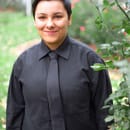What exactly is feminism?
Feminism isn’t what most people view it as – women hating men. Actually, it’s kind of the opposite. Feminists are women who want the same rights as men. Women who are treated and paid an equal amount of men, with the same opportunities. Clara Fraser is a pioneering theorist as well as the builder of socialist feminism, and she says “The logic of feminism is to expand into generalized radicalism.” The most important part of feminism is equality. It’s the fight to be viewed, as well as being treated, equally.
Some Types of Feminism
There are many different types of feminism, but in order to save time, I will only talk about the three most important types: social, reformist, and radical.
Social feminism focuses in on the social rights of women as well as accommodations. This was first seen in the late nineteenth and twentieth century in order to describe the women’s suffrage movement.
Reformist feminism, also known as liberal feminism, focuses on the women’s own actions in order to maintain equality. This type of feminism is usually the most well-known: the type where they try to make legal and political rights for women equal to those of men.
Radical feminism is similar to what we recently saw happen within the elections. This is when there is a call for a “reordering of society where male supremacy is eliminated in all social and economic contexts. Radical feminists view society as fundamentally a patriarchy in which men dominate and oppress women,” (Wikipedia).
Some feminist movements
The Suffrage Movement: There was a World Anti-Slavery event in London during the 1840’s and, at this event, two women were denied seats due to their gender. This caused a rally where many women got together and rallied about their rights. Susan B. Anthony and Sojourner Truth led the way for the suffrage movement.
Women’s Liberation Movement: Even though women all over the world were pursuing higher education, they weren’t getting much further than that. This was what brought out the fight to maintain equality in the workforce, education, sexuality, and domestication. Shortly after, The National Organization for Women (NOW) was brought to be by Betty Friedan and other prominent feminist of the time. NOW pushed for things such as birth control, abortion and equal pay opportunities.
#MeToo Movement: This was founded in 2006 with hopes to help survivors of sexual violence, most specifically, people of color. This was especially important for those who came from low income families and their search of healing. The #MeToo movement was a positive way to spread not only awareness but to prove that, when it comes to sexual violence, you are not alone. This has recently sprung back up in the past year where people were posting their #metoo stories all over social media platform to let others know they are not in this fight alone.
Some Contributors to Feminism
Simone de Beauvoir: She’s the author of the novel The Second Sex, which was written well ahead of its time. Within this book she talks about the patriarchy and social constructs of women in her time. She is said to have paved the way of modern feminism.
Eleanor Roosevelt: She worked with the Women’s Trade Union League and the International Congress of Working Women. She was also the first First-Lady to take on roles in the White House other than the usual entertaining and hosting.
Betty Friedan: She is credited with writing the book which sparked the second wave of feminism that began in the 60s and 70s. She dedicated her life to finding equality for women.
Gloria Steinem: She is also known as the mother of feminism. She was the one who led the women liberations in the 60s and 70s and continued to do so afterwards. She has won many awards of the years with her most recent one being in 2013, the Presidential Medal of Freedom.
Maya Angelou: She is one of many who transitioned from writer to speaker. She not only focuses on sexism but also racism as she talks about how to overcome both race and gender discrimination. She has earned a total of 50 honorary degrees, 36 books and seven autobiographies over the span of 50 years.
Tarana Burke: The founder of the #MeToo movement back in 2006. She did this to create a safe space for victims of sexual abuse to be heard, to spread the word and to know they are not alone. With this movement, people have been able to read other’s stories that are much like theirs, and yet very different. This shows what it’s really like for women to be objectified and taken full advantage of.


